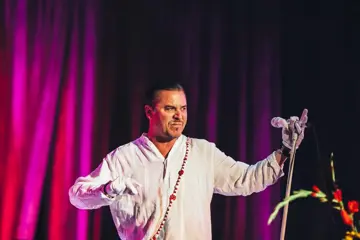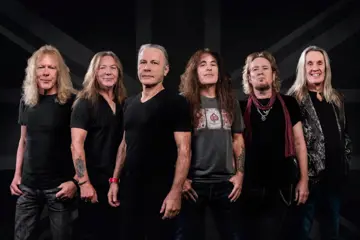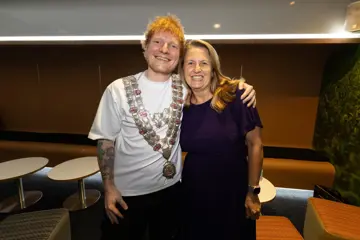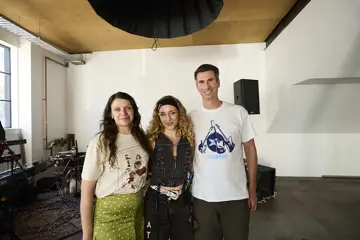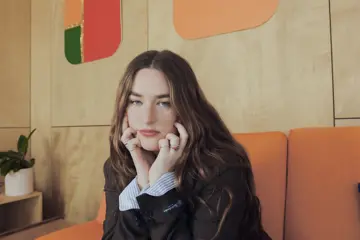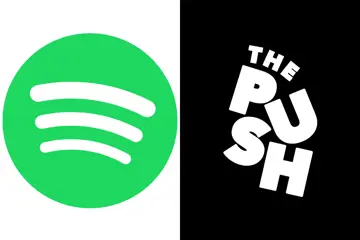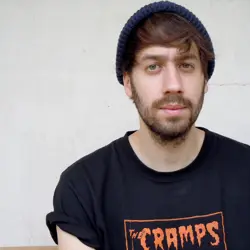 Gold Panda
Gold PandaQuick, go to Gold Panda's page on Wikipedia. Now look at the bar on the right. There you'll see a list of words, each in their little blue hue of hyperlinking: electronic, glitch, folktronica, microhouse, minimal techno, post-dubstep, wonky, ambient, chillwave. According to anyone you talk to, the man known as Derwin Schlecker to his parents is all of those things, if only because it's impossible to categorise his music without obscure pseudo-genres. Gold Panda live sets have taken on near-legendary status for putting a wonky curve on electronic music. He is also just a guy.
“I'm just sitting on the sofa doing nothing,” Schlecker says. “It's 8am or something here, so the day hasn't really started. I'm alright for a few hours.” He finds himself in a reprieve, towards the tail-end of touring Half Of Where You Live, his big statement of 2013. “I've just been visiting my grandma, and she's been teaching me to make curries. She's Indian, so she's teaching me all these old village recipes. Which are very, ah, random, very spontaneous. They change every day; one day it will be one thing, and the next it will be completely different.”
The symbolism of that statement isn't lost, especially in the ever-fluid environment of electronic music production. Half Of Where You Live slammed a big rubber stamp on the sound that was hinted at by Schlecker's 2010 debut, Lucky Shiner. It's an album born out of spontaneity: a huge swath of eclectic samples, finely tuned harmonies and delicate switches over a base of uncomplicated British dubstep beats. “I worried about it for a long time,” he explains. “I did spend a lot of time thinking, 'Well, I should make a second album', but you never want your work to be work. You always want what you're doing to be better.
“Actually, I listened to it for the first time since the release the other day. I liked about seven out of the 11 tracks; I could listen to them without cringing,” Schlecker laughs. “That's a pretty good ratio, I think. I think it was just after touring and trying to meet all these people and being in all these different places, I wanted to capture a snapshot of it. And being in Berlin and having the spontaneity of live jams with, like, one drum machine. Being in a position where you're... not forced, really, but you're in a position where you have to arrange all these things while looking at a screen, all spontaneously. I wanted to capture that. It feels like quite a free album to me, especially arrangement-wise.”
Therein lies the slight contradiction to Schlecker's music: while a sense of flow and dispersion does work around the edges, there's a pretty rigid set of rules he places on production; “I think with the first album, I toured it for three years, and then I was knackered,” he shares. “When you play the same stuff for too long, you tend to go a bit loopy.”
Despite that, Half Of Where You Live just works, and probably will for some time to come. Schlecker acknowledges that – “I feel like it's something that can stand up in the future,” – and that the album format is probably a big part of its strength. “I love albums as a format. I'm pretty old now, so I don't really know what else to do. I don't really know how the trend's going to go. I think music is just released differently now; you don't have to have an album, you can just release some tracks. And it's fine, no one's bothered. I think people do still say, 'When's the album out?' which is weird these days, I think. The album is not as relevant, like the be-all-and-end-all of a band, as it used to be. But then that's kind of ignoring the aesthetics of an album. I've always loved albums that have a certain sound and capture a certain something that the artist's going through, or a sound the band are experimenting with or something. The moments of, like, revelation I remember from music are through albums. They're the parts of my childhood I remember. I think it's important for music to have a narrative, something you can grasp. And a lot of the time, at least with me, albums are the best way to do that.
“I'm really looking forward to doing another one now, and trying to maintain that sound, and that freedom. I was nearly there with the last one, and as important as albums are to me, I'm trying to... I guess it's kind of cheesy to some people to think of an album as a project, but I still enjoy it in that way. I still feel like I'm making a piece of work, or a story. And I enjoy that.”





